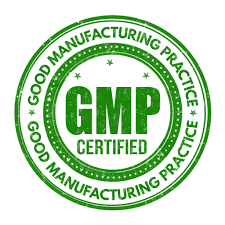Union Health Minister Mansukh Mandaviya announced on Wednesday that Pharmaceutical companies with an annual turnover exceeding ₹ 250 crore will be required to implement Good Manufacturing Practices (GMP) within the next six months.
As per the announcement, pharmaceutical companies having an annual turnover of less than ₹ 250 crore will be given a 12-month period to implement Good Manufacturing Practices (GMP). Those who do not comply with the given timeline may face penalties as per the legal provisions.
The implementation of GMP guidelines is crucial to ensure the quality and safety of pharmaceutical products in India, and failure to comply with these guidelines can have serious consequences. It is, therefore, essential for all pharmaceutical companies to adhere to the timelines set by the government and implement GMP guidelines in a timely manner.
Mandaviya’s announcement confirmed the approval and implementation of the draft of Schedule M of the Drugs and Cosmetics Act, which was initially prepared in 2018. This strategic step aims to effectively regulate the manufacturing processes of pharmaceutical products in India, with a primary focus on ensuring their quality and safety.
Mandaviya highlighted that the pharmaceutical sector in our country is flourishing with a significant number of 10,500 pharmaceutical manufacturing units. What’s even more encouraging is that approximately 8,500 of these units belong to the MSME (Micro, Small and Medium Enterprises) category.
This highlights the importance of supporting and regulating the MSME sector, which plays a crucial role in the Indian economy. The implementation of GMP guidelines in MSMEs will help to improve the quality and safety of their products, which will ultimately benefit both the industry and consumers.
India plays a significant role in supplying medicines to Low and Middle-Income Countries (LMICs) that require WHO GMP certification. The country boasts approximately 2,000 units under the MSME category that have been certified by WHO for GMP. As a result, India has emerged as a major exporter of pharmaceuticals to LMICs, ensuring access to affordable and high-quality medicines for millions of people in these countries.

According to Mandaviya, there has been significant progress in the pharmaceutical manufacturing and quality domain over the past 15-20 years. This progress has been driven by advancements in Pharmaceutical and Manufacturing Sciences, which have expanded our understanding of the domain. As a result, we now have a better understanding of the interdependence between manufacturing practices and product quality, establishing a clear linkage between the two.
Schedule M for pharmaceutical industries
The Drugs Rules, 1945 includes a provision known as Schedule M, which outlines a comprehensive set of requirements related to various aspects of pharmaceutical manufacturing. Some of the key areas covered by Schedule M include facility maintenance and design, personnel requirements, manufacturing protocols, quality control and safety testing procedures, material storage and transportation guidelines, as well as written record-keeping and traceability protocols.
According to a statement by the health ministry, ongoing risk-based inspections have highlighted the importance of revisiting the current GMP regulations and quality management systems that pharmaceutical manufacturers are following. These observations have emphasized the need for a closer examination of existing practices to ensure that they are up-to-date and effective in maintaining high standards of quality and safety.
As part of recent drug regulatory inspections, 162 manufacturing units and 14 public testing labs were assessed, and several significant issues were identified. These issues included poor documentation, inadequate process and analytical validations, a lack of quality failure investigation, a failure to conduct internal product quality reviews, and faulty design of manufacturing and testing areas, among other concerns.
“Due to the ever-evolving nature of the manufacturing and quality landscape, it became essential to review and modernize the principles and concepts of Good Manufacturing Practices (GMP) outlined in the current Schedule M. This proactive approach enables us to align our GMP guidelines and compliance expectations with global standards, particularly those set forth by the World Health Organization (WHO).
By doing so, we can guarantee the production of pharmaceuticals that meet globally recognized quality standards, fostering the delivery of universally acceptable drugs,” the statement said.













